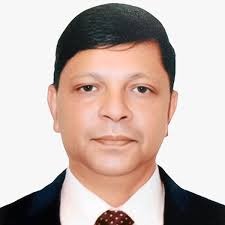Bangladesh on the brink: A deep dive into the nation's security crisis
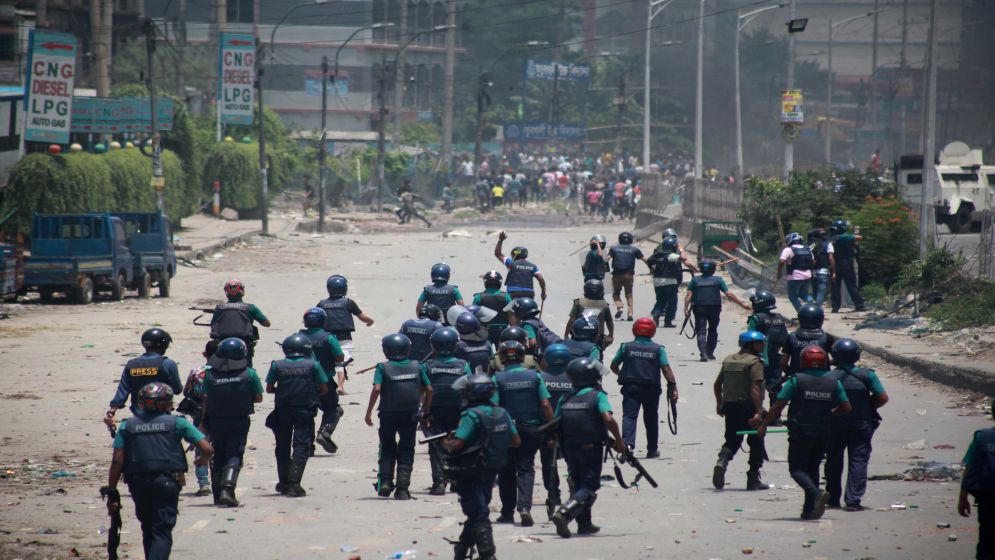
Photo Credit: Nazmul Islam
The recent surge in unrest in Bangladesh necessitates a thorough evaluation of the entire spectrum of statecraft, with particular focus on the security sector.
The security situation is precarious, as the main security force, the Bangladesh Police, has largely been inactive since August 5, 2024. Although the police resumed operations on August 15, they have done so hesitantly and without confidence, relying on the protection of the Bangladesh Army.
The current lawlessness stems from the severe misconduct and unprofessional actions of the police, Rapid Action Battalion (RAB), and Ansar forces. Additionally, remnants of the previous regime continue to create chaos and undermine the current government, as evidenced by incidents like those in Gopalgonj.
Despite this, Sheikh Hasina, with backing from India, allegedly continues to incite and instruct disruptive elements. Her son, Sajeeb Wazed Joy, is reportedly spreading misinformation in the Indian media, which, particularly those aligned with the BJP, perpetuate negative narratives about the current administration.
Moreover, significant civil and military positions in Bangladesh are occupied by individuals who are excessively and unethically loyal to the former regime.
A mere reshuffling of top officials will not address the underlying threats and challenges. This situation poses a serious risk not only to the Chief Advisor, the Chief of Air Staff, and other high-ranking officials but also to the overall stability of the country.
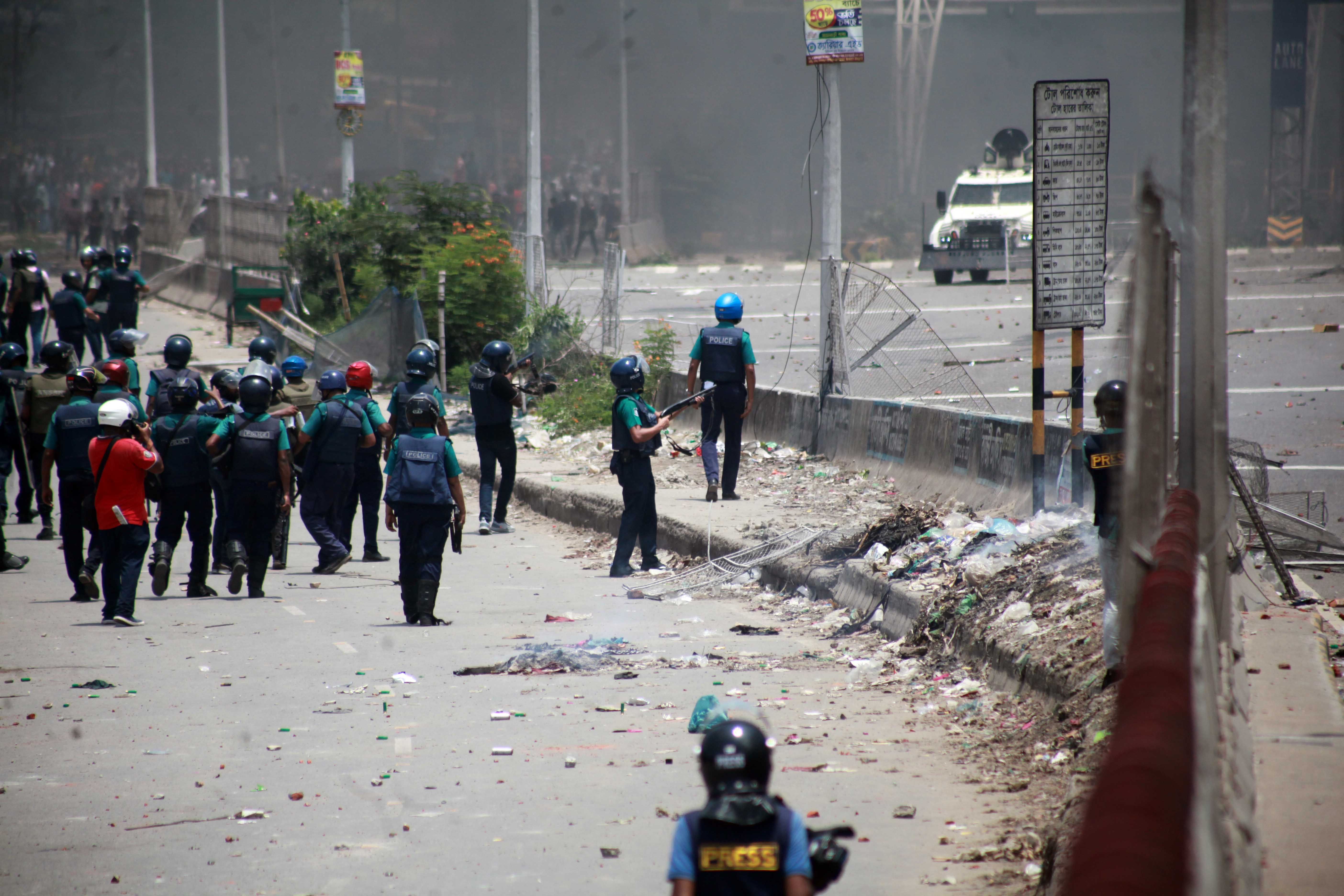
This is because the previous regime, like other institutions and organizations, undermined professionalism, the chain of command, and best practices among security providers through political interference, rampant nepotism, fostering sycophancy, and a lack of accountability.
Additionally, Indian intelligence (RAW) has been operating directly within Bangladesh, with a base established through the support of the former government, certain corrupt Awami League politicians, influential minority groups, and elements of both civil and military bureaucracy.
India's ultimate goal was to turn Bangladesh into a vassal state, with Sheikh Hasina’s direct support facilitating this aim. Organizations such as ISKCON operated both overtly and covertly against Bangladesh’s interests and in favor of India, supported by the previous regime. Notably, a former Education Minister publicly acknowledged his affiliation with ISKCON, citing his education in India as the reason.
Destruction of security apparatus
The previous regime, having lost credibility and popularity since 2014, engaged in these actions to maintain its hold on power. In exchange, India secured several advantageous agreements with Bangladesh. However, with Sheikh Hasina’s downfall, India lost its influence over Bangladesh. Although India managed to win Sheikh Hasina’s loyalty since 2009, it has lost the support, respect, and sympathy of the Bangladeshi people.
The Centre for Research and Information (CRI), an Awami League-affiliated think tank, was actively involved in spreading propaganda, suppressing opposition, engaging in illegal gratification and nepotism within constitutional and governmental organizations, and serving Indian interests.
The bandwagon approach and foreign policy of the previous regime had a profound impact on every sector in Bangladesh, including security, affecting strategy formulation, operations, administration, recruitment, training, and procurement.
-66ceb1cc79051.jpg)
Corruption has pervaded all organizations, with leaders personally involved in unethical practices. It is a significant disgrace for the nation that these leaders face US sanctions for corruption and human rights violations.
It is said that securing a job in the Police, Ansar, or BGB often required a bribe or strong connections with Awami League leaders. Similarly, obtaining a desirable posting in Dhaka or other attractive locations was often linked to opportunities for bribery, embezzlement, and involvement in illicit activities such as drug and human trafficking or smuggling arms and other goods.
Traditional practices, good policies, and standards were compromised, leading to a gradual decline in professionalism. Loyalty to the Awami League took precedence over professional competence.
Having relatives, even distant ones, associated with or sympathetic to other political parties was seen as a disqualifying factor for promotion or favorable postings. This created a ripple effect throughout the military, with officers increasingly seeking political patronage to secure better positions or pass challenging promotion boards, rather than relying on their professional abilities.
Desecration of reputation
There were military collaborators with the tyrannical regime who designed, established, and operated the notorious torture cell known as “Ayna Ghar” under DGFI.
Many well-known and ordinary individuals were held in deplorable, unhealthy conditions for years in this facility. Anyone with dissenting views or connections to the opposition was abducted and detained in secret, beyond the reach of the judiciary.
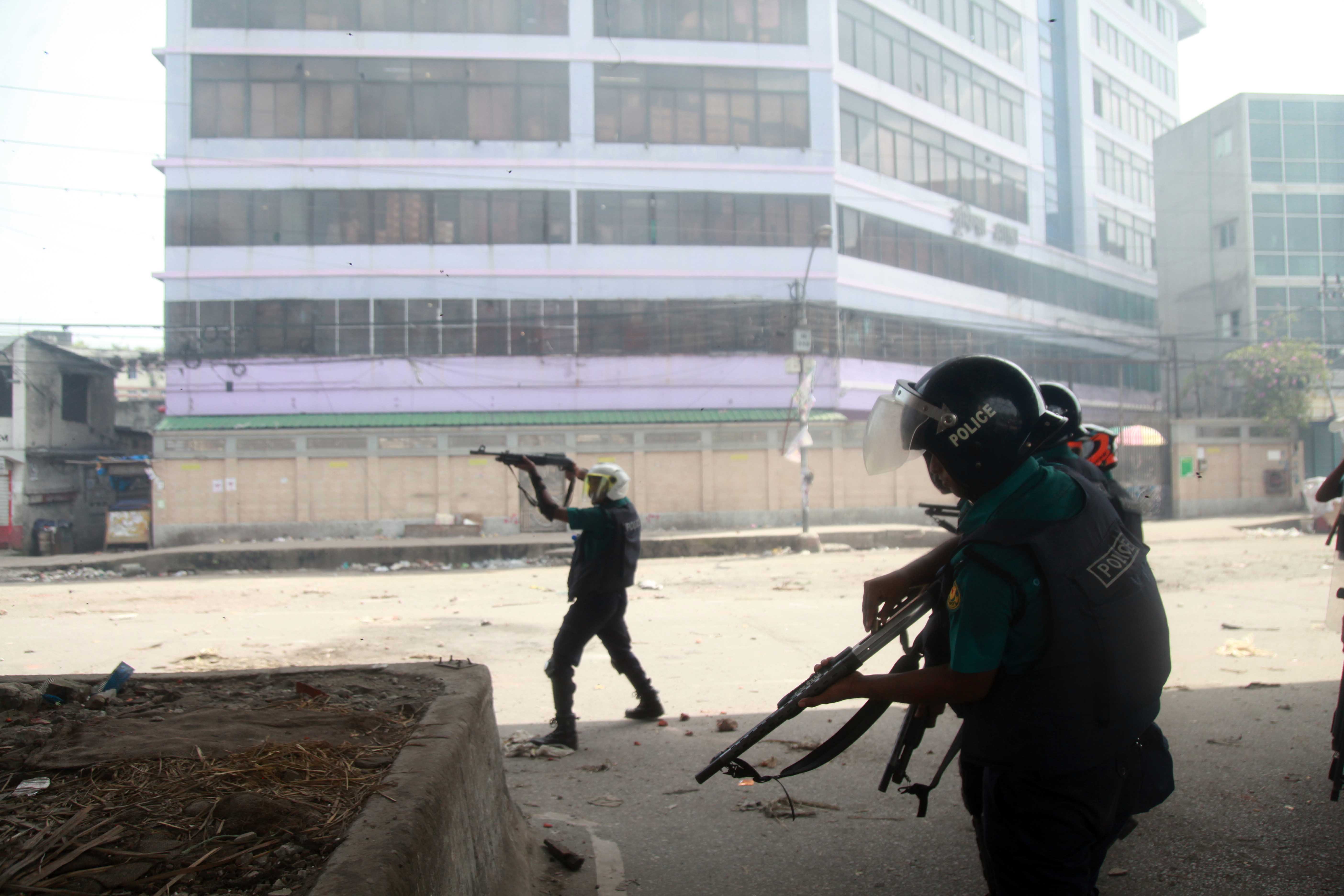
Numerous incidents orchestrated or facilitated by the previous regime aimed to undermine the Bangladesh Army. The BDR massacre in 2009, where 57 esteemed officers were brutally killed, was part of this conspiracy.
In the aftermath, many officers protested in front of then-Prime Minister Sheikh Hasina at SenaKunja and subsequently lost their jobs for criticizing the government’s inaction. The so-called 2012 conspiracy involving Major Zia led to the dismissal of several officers.
General Aziz (Retired) implemented a retroactive immigration policy in 2019, resulting in the forced retirement of approximately 250 capable officers. Additionally, during his tenure (2018-2021), he dismissed or forced the retirement of about 73 other officers for various reasons.
It is alleged that General Aziz, in collusion with RAW, significantly weakened the Bangladesh Army.
With the successful student-led uprising and the establishment of the Interim Government, the nation is now witnessing a glimmer of hope. Bangladesh stands at a crossroads, poised for prosperity, development, growth, and evolution.
Like other sectors, the security sector requires a comprehensive overhaul. It is essential to restore the credibility of these organizations and realign them on the right path.
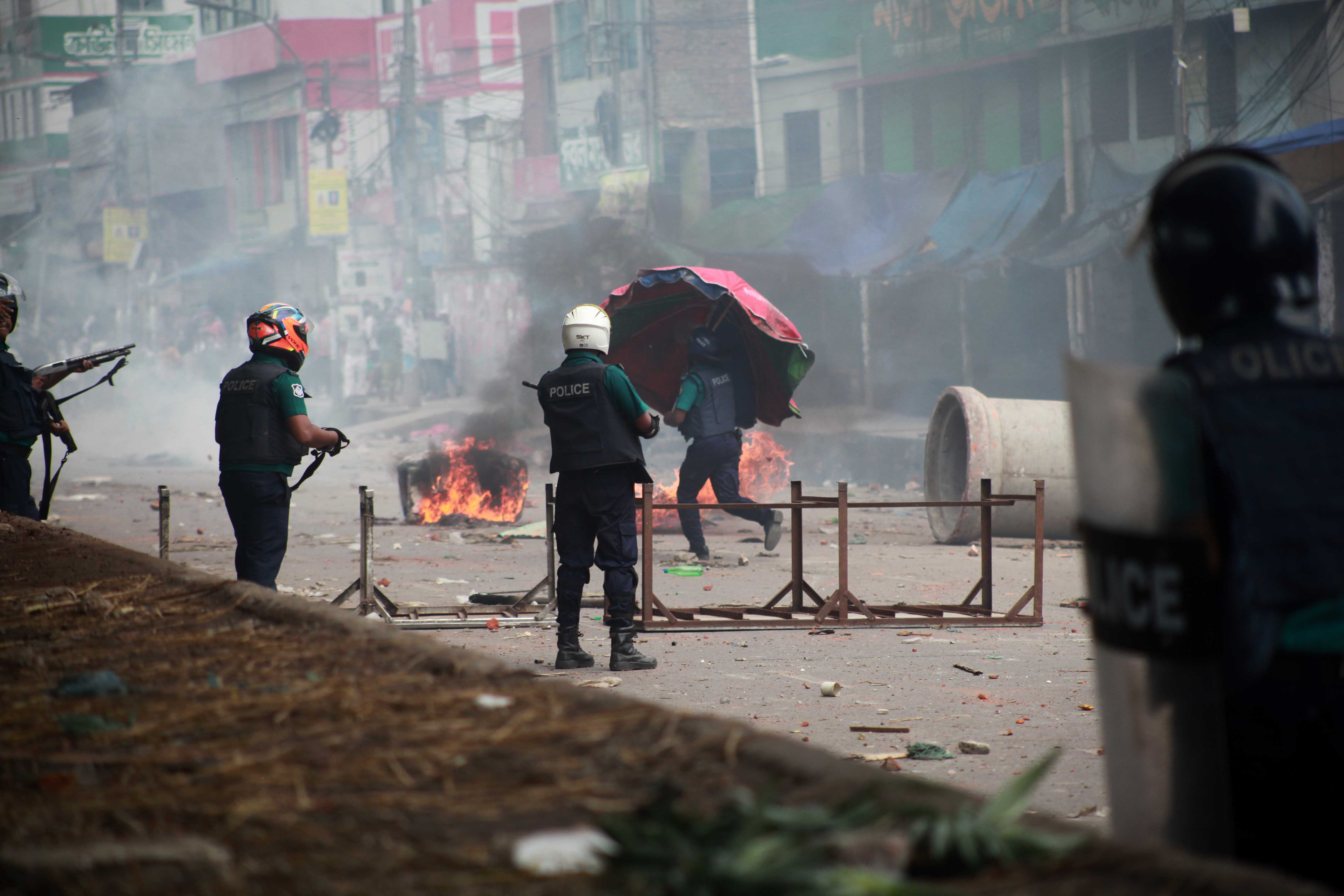
How to restore order in security sector
The broad spectrum of the Security Sector encompasses Management and Oversight Bodies, Professional Security Providers, and Justice and Rule of Law Actors.
Management and Oversight Bodies include elements such as the executive branch, national security council, legislative bodies, and ministries of defense, home, planning, and foreign affairs, as well as financial management units like audit and planning departments.
Professional Security Providers consist of the armed forces, police, paramilitary forces, intelligence agencies, customs and immigration services, fire brigade, civil defense, and BNCC.
Justice and Rule of Law Actors include the judiciary, law ministry, prisons, criminal investigation and prosecution services, human rights commissions, ombudsmen, and customary and traditional justice systems.
Given the vast scope of the security sector, I am concentrating on the Armed Forces and briefly address the two key intelligence organizations, NSI and DGFI.
Firstly, since the Liberation War of 1971, the country has not experienced such national unity as seen today. Over 95% of the population is united under the leadership of the current Interim Government led by Dr. Muhammad Yunus, representing a significant strength for the government.
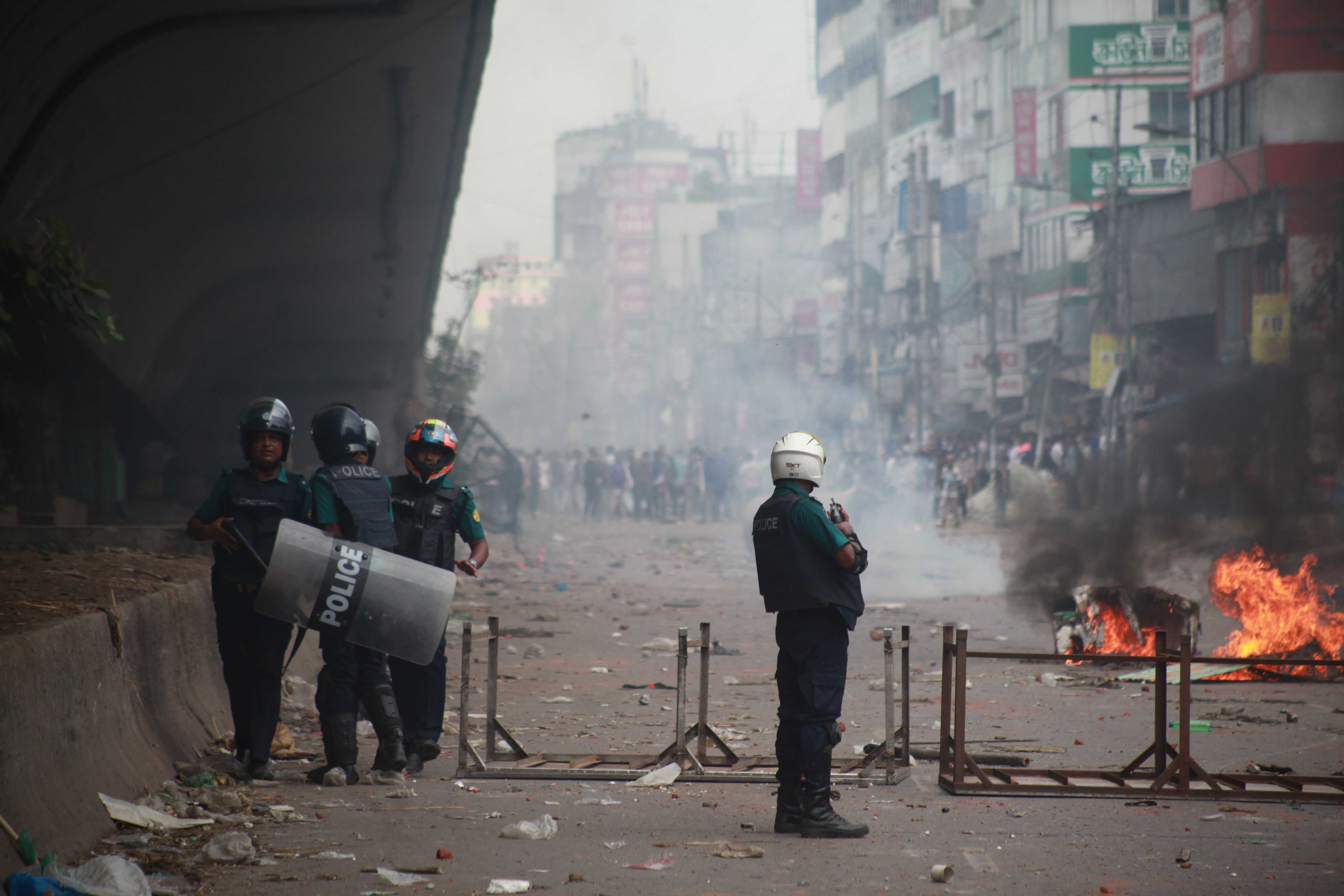
Secondly, Generation Z, which had previously shown little interest in national politics and affairs, is now actively engaged in nation-building and guiding the country toward a better future. This unprecedented shift in attitude should be leveraged fully.
We have observed a persistent brain drain of talented youth from Bangladesh to developed countries due to frustration, lack of opportunities, and unfavorable conditions in educational institutions and the job market, as well as widespread politicization, corruption, nepotism, lawlessness, and inequalities.
Thirdly, the mid and lower ranks of the Bangladesh Armed Forces are discontent with the previous regime's misrule, corruption, and misconduct. They are unified and committed to fostering positive change, having been well-informed about national issues through social media.
Finally, the global community, including major international non-state actors like the UN, EU, and OIC, generally supports the current government, with the exceptions of India and possibly Russia. China has adopted a cautious approach and may be waiting for an opportune moment to engage with the new government.
-66ceb29be2fb7.jpg)
What can be done?
Immediate Actions to Address Security Crisis
- Purge Corrupt High-Ranking Officers:
● Forced Retirement and Investigation: Immediately force the retirement of all high-ranking military officers known for corruption or alleged involvement in misdeeds during the previous regime. Prevent them from leaving the country and initiate investigations based on evidence and stakeholder input. Freeze their accounts and take them into custody if allegations are initially substantiated. Identify and prosecute their accomplices.
● Gradual Replacement: Systematically replace the entire cohort of officers, prioritizing those with extreme loyalty to the previous regime.
● Empower Junior Officers: Appoint capable junior officers as acting heads of formations/institutions/entities rather than retaining corrupt seniors in leadership positions.
- Overhaul Intelligence Organizations:
● Replace Compromised Personnel: Replace officers at all levels of intelligence organizations, as their selection was based on loyalty to the Awami League rather than merit.
- Prosecute Corrupt Retired Officers:
● Arrest and Judicial Proceedings: Apprehend known corrupt retired officers like Major General Tariq Ahmed Siddiqui (Retired) and General Aziz (Retired). Initiate prompt judicial proceedings and restrict their travel. Identify and prosecute their accomplices.
● Extradite Fugitives: Bring back corrupt officers who have fled the country. Initiate legal proceedings even in their absence to send a clear message that no one is above the law.
- Review Promotions and Dismissals:
● Investigate Politicized Promotions: Establish a Board of Officers to review all promotions from Lieutenant Colonel (and equivalent) to Lieutenant General (and equivalent) since 2018. Identify officers responsible for promoting unsuitable candidates.
● Reassess Unjust Dismissals: Form a Board of Officers to review all dismissals and forced retirements under the previous regime since 2009 to address potential injustices.
- Address Past Atrocities:
● Reopen BDR Killing Inquiry: Revive the investigation into the BDR killings and bring all perpetrators to justice.
- Combat Corruption and Mismanagement:
● Thorough Investigation: Launch a comprehensive investigation into corruption, nepotism, illegal vendor selection,and misappropriation in procurement, construction, projects, and supply chains throughout the Armed Forces,particularly since June 2018.
-66ceb272a0280.jpg)
Mid to Long-Term Actions to Strengthen Security and Military
- Redefine Intelligence Agencies' Roles:
● Review and Clarify Mandates: Conduct a comprehensive review of the vision, mission, objectives, tasks,jurisdiction, and employment of the Directorate General of Forces Intelligence (DGFI) and the National Security Intelligence (NSI). This will provide a clear framework for officers to resist illegal orders from superiors or the government.
- Preserve Historical Narratives:
● Document Liberation War and Military History: Compile and preserve accurate accounts of the Liberation War and the history of the Bangladesh Armed Forces to foster a sense of national identity and pride.
- Reform Military Policies:
● Merit-Based System: Review and revise all relevant policies, ensuring that recruitment, promotion, and posting are strictly based on merit.
- Review International Agreements:
● Scrutinize Past Deals: Review all agreements and Memorandums of Understanding (MOUs) signed between the Bangladesh Army, Navy, Air Force, DGFI, NSI, and other armies/intelligence organizations during the previous regime, especially those with India.
- Restore Professionalism:
● Revive Traditions and Focus on Core Roles: Reinstate good traditions and practices within the military,emphasizing professionalism and adherence to classical roles. Recall all officers from the Rapid Action Battalion (RAB) and limit military involvement in civilian projects to exceptional circumstances.
- Reform Veterans' Organizations:
● Revitalize RAOWA: Review and reform the Retired Armed Forces Officers' Welfare Association (RAOWA) to ensure it serves the interests of patriotic veterans and is not influenced by political factions.
- Improve Welfare for Retired Soldiers:
● Authorize Rations: Provide retired soldiers with ration benefits, similar to those received by retired police personnel, to improve their quality of life.
● Enhance Healthcare Access: Address the inadequate healthcare services available to retired soldiers by exploring ways to expand capacity and improve access to care at Combined Military Hospitals (CMHs).
All these actions are essential for building a professional, accountable, and well-supported military that serves the nation's interests and upholds its values.
By implementing these measures, Bangladesh can strengthen its security apparatus and ensure a stable future.
—-
Major General (Retd) Nayeem Ashfaque Chowdhury is a retired Major General of Bangladesh Army.

